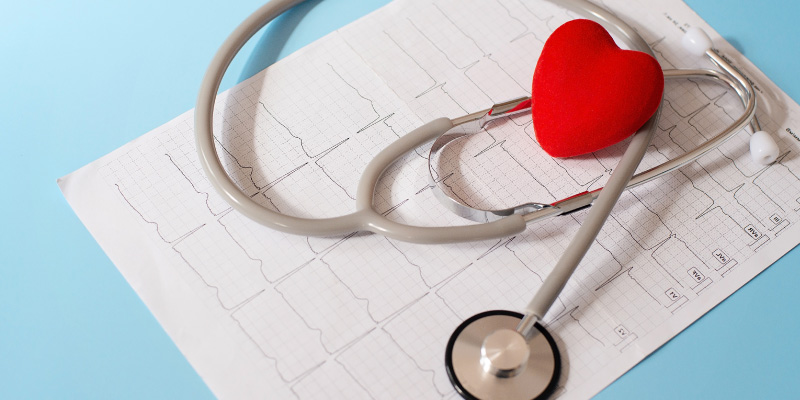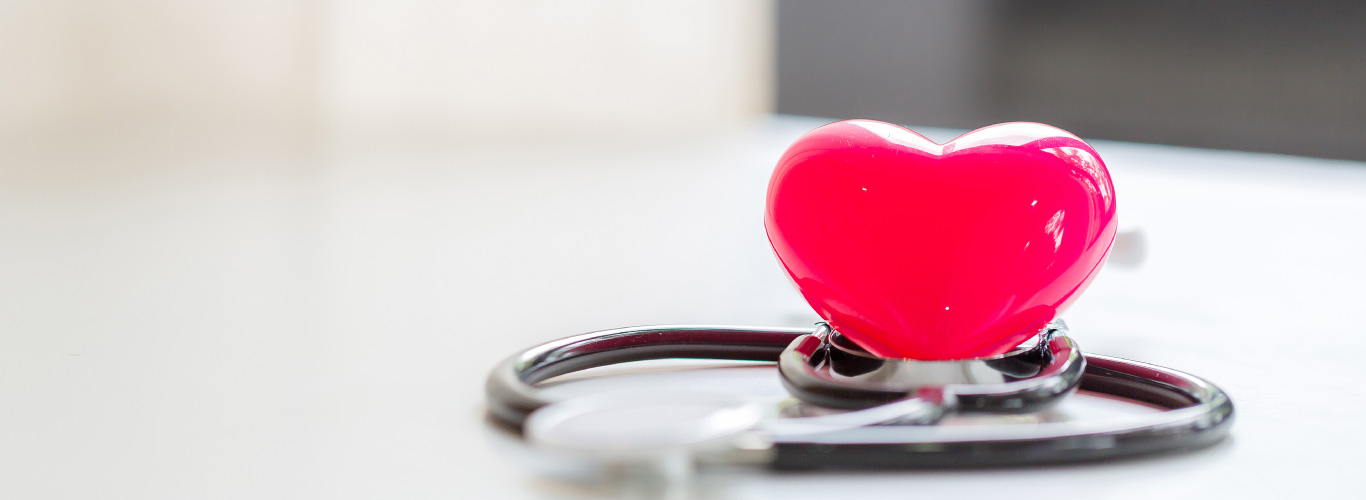Heart Palpitations are unpleasant sensations of an irregular, fluttering, fast-beating, or pounding heart. Irregularities in the electrical conducting system lead the heart to beat too slowly, too quickly, or abnormally. Stress, anxiety, medicine, exercise, or a medical condition can trigger Heart Palpitation.
Heart Palpitation can be an isolated extra heartbeat or many extra beats for a prolonged period that run together. Sometimes the skipped heartbeat or a pause can be felt. This sensation of a skipped heartbeat is felt in the throat, chest, or neck.
Normally Heart Palpitations are harmless but they can be worrisome. In very rare cases, Heart Palpitations can be a symptom of a serious heart condition, like arrhythmia (irregular heartbeat), which requires proper treatment.
Some Common Facts about Heart Palpitation

- Heart Palpitations are sensations of a fast-beating or pounding heart.
- They are a sensory symptom.
- Heart Palpitations are usually described as a skipped heartbeat, pounding sensation in the neck or chest, rapid fluttering, or flip-flopping in the chest.
- The word palpitation is interpreted as a rapid pulsation, an irregular or abnormal beating of the heart.
- The alternative names of Heart Palpitation are heartbeat sensations, heart racing or pounding, or irregular heartbeat.
- Usually, Heart Palpitations are harmless but they can be life-threatening.
- Palpitations are nonspecific and can be triggered by stress, anxiety, medicine, exercise, or medical condition.
- Some lifestyle factors can lead to Heart Palpitations.
- A study shows that 16% of patients in the primary care provider have reported palpitations.
- The cardiac etiology of palpitations are life-threatening and involve ventricular sources, atrial sources, high output states, structural abnormalities, and miscellaneous sources like POTS (postural orthostatic tachycardia syndrome), sinus tachycardia and Brugada syndrome.
- A study done by NCIB show that the cause of palpitations is 43% due to cardiac etiology, 31% due to psychiatric etiology, and about 10% is listed as miscellaneous which include medication-induced, cocaine, caffeine, thyrotoxicosis, anemia, mastocytosis, amphetamine.
- Various psychiatric disorders can also result in palpitations like depression, panic attacks, generalized anxiety disorder, and somatization.
- Research shows that approximately 67% of patients suffering from a mental health condition have an underlying arrhythmia.
- Many metabolic conditions can trigger palpitations like hyperthyroidism, hypocalcemia, hypoglycemia, hyperkalemia, hypermagnesemia, hypokalemia, hypomagnesemia, and pheochromocytoma.
Causes of Heart Palpitation
The cause of Heart Palpitations can not be found. But the possible causes include:
- Strenuous exercise
- Stress
- Anxiety
- Panic attacks
- Fear
- Lack of sleep
- Depression
- Excess caffeine or alcohol consumption
- Dehydration
- Electrolyte abnormalities
- Hormonal changes associated with pregnancy menstruation, or menopause
- Low blood sugar
- Hyperthyroidism or an overactive thyroid
- Anemia
- Blood loss
- Low level of carbon dioxide or oxygen in the blood
- Shock
- OTC (over-the-counter) medications that contain pseudoephedrine
- Heart disease
- Fever
- Arrhythmia
- Abnormal heart valves
- Sleep apnea
- Smoking
Heart Palpitation is a sign of a serious issue. Arrhythmias or heart rhythm changes can lead to tachycardia (a very fast heart rate), bradycardia (an unusually slow heart rate), a normal heart rate that differs from the usual heart rhythm, or a mixture of the three.
Heart Palpitations are harmless, but it indicates an underlying disease if the person is suffering from:
- A defective heart valve
- Congestive heart failure
- Heart disease risk factors
- A diagnosed heart condition
Some lifestyle changes can also trigger Heart Palpitation. They are:
Strenuous exercise
- Alcohol consumption
- Smoking
- Insomnia
- Excessive caffeine consumption
- Illegal drugs, like cocaine, amphetamines, heroin, ecstasy, and cannabis
- Spicy foods
Heart Palpitations can also be triggered by psychological or emotions issues, like:
- Stress
- Anxiety
- Excitement
- Nervousness
- Panic attacks
Heart Palpitations can occasionally be caused by some medicines, like:
- Asthma inhaler
- Hypertension or high blood pressure medicines
- Antihistamines
- Antidepressants
- Antibiotics
- Antifungal medicines
In women, Heart Palpitations can also be caused due to hormonal changes that occur during:
- Pregnancy
- Periods
- Menopause
Sometimes, palpitations are caused due to arrhythmia or heart rhythm issue, like:
- Atrial fibrillation
- Atrial flutter
- SVT (supraventricular tachycardia)
- Ventricular tachycardia
Symptoms of Heart Palpitation
Heart Palpitations are usually felt in the neck, throat, or chest. It can feel like the heart is:
- Beating too fast
- Skipping beats
- Pounding
- Fluttering rapidly
- Flip-flopping
The other common symptoms of Heart Palpitation are:
- Weakness
- Dizziness
- Lightheadedness
- Loss of consciousness
- Fainting
- Confusion
- Excessive sweating
- Difficulty in breathing
- Pressure or tightness in the chest
- Shortness of breath
- Pain in the neck, arms, chest, upper back, jaws
- A pulse rate higher than 100 beats per minute
Diagnosis of Heart Palpitation

To diagnose Heart Palpitation, the doctor can listen to the heartbeat using a stethoscope and can also ask questions regarding medical history. The doctor may examine the signs and symptoms of medical conditions that can lead to Heart Palpitations, like the swollen thyroid gland.
If the doctor suspects that the palpitations are induced by arrhythmia or other heart diseases, then the tests might include:
- Electrocardiogram: In ECG, electrical signals are recorded that makes the heartbeat. It can assist the doctor to detect issues in the heart structure and heartbeat that can cause palpitations.
- Holter monitoring: This device records the ECG constantly, normally for 24 to 72 hours. Holter monitoring detects Heart Palpitations that could not be detected through the ECG.
- Event recording: The doctor might suggest an event recorder if there are no irregular heart rhythms while wearing a Holter monitor. This ECG device is designed to monitor heart activity.
- Echocardiogram: This noninvasive examination produces a moving picture of the heart using sound waves. It also shows structural and blood flow problems with the heart.
Conclusion
Heart Palpitations are common and usually last for a few seconds. But the occurrence of palpitations can be reduced or stopped by taking appropriate precautionary measures. Seek professional help sensation lasts for longer because this can indicate an underlying disease that requires treatment.




